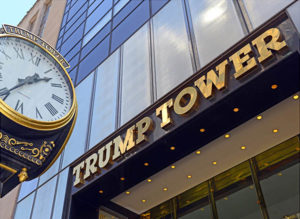President Trump Signs Bill to Help Small Businesses with Paycheck Protection Program Flexibility

Press Release Friday June 5, 2020. This morning president Trump signed into law H.R.7010 to help small businesses. The purpose of the Paycheck Protection Program Flexibility Act is to amend the Small Business Act and the CARES Act to modify certain provisions related to the forgiveness of loans under the paycheck protection program, to allow recipients of loan forgiveness under the paycheck protection program to defer payroll taxes, and for other purposes.
President Trump signed into law H.R.7010, The Paycheck Protection Program Flexibility Act of 2020, sponsored by Rep. Phillips, Dean of Minnesota. The U.S. Senate passed the House version Wednesday night, it significantly extends the time for small businesses and other PPP loan recipients to spend the funds and still qualify for forgiveness. It also eases rules about how borrowers can use the PPP loan funds.
Ultimately the bill passed with a unanimous voice vote after Wisconsin Sen. Ron Johnson who initially blocked it, was promised a letter clarifying that June 30 remains the deadline for applying to receive a PPP loan by Senate leader Mitch McConnell. The vote had to be unanimous because the Senate is not officially in session. Leaders from both parties in the Senate pushed to pass the legislation on Wednesday as the clock on the initial eight-week window recently expired for the first recipients of PPP loans.
Following is a summary of the legislation’s main points compiled by the AICPA:
- Current PPP borrowers can choose to extend the eight-week period to 24 weeks, or they can keep the original eight-week period. New PPP borrowers will have a 24-week covered period, but the covered period can’t extend beyond Dec. 31, 2020. This flexibility is designed to make it easier for more borrowers to reach full, or almost full, forgiveness.
- Under the language in the House bill, the payroll expenditure requirement drops to 60% from 75% but is now a cliff, meaning that borrowers must spend at least 60% on payroll or none of the loan will be forgiven. Currently, a borrower is required to reduce the amount eligible for forgiveness if less than 75% of eligible funds are used for payroll costs, but forgiveness isn’t eliminated if the 75% threshold isn’t met. Rep. Chip Roy (Texas), who co-sponsored the bill in the House, said in a House speech that the bill intended the sliding scale to remain in effect at 60%. Senators Marco Rubio and Susan Collins indicated that technical tweaks could be made to the bill to restore the sliding scale.
- Borrowers can use the 24-week period to restore their workforce levels and wages to the pre-pandemic levels required for full forgiveness. This must be done by Dec. 31, a change from the previous deadline of June 30.
- The legislation includes two new exceptions allowing borrowers to achieve full PPP loan forgiveness even if they don’t fully restore their workforce. Previous guidance already allowed borrowers to exclude from those calculations employees who turned down good faith offers to be rehired at the same hours and wages as before the pandemic. The new bill allows borrowers to adjust because they could not find qualified employees or were unable to restore business operations to Feb. 15, 2020, levels due to COVID-19 related operating restrictions.
- New borrowers now have five years to repay the loan instead of two. Existing PPP loans can be extended up to 5 years if the lender and borrower agree. The interest rate remains at 1%.
- The bill allows businesses that took a PPP loan to also delay payment of their payroll taxes, which was prohibited under the CARES Act.
For more information about tax implications of PPP loans or tax services for family offices or the ultra-affluent, please visit GROCO.com, contact your GROCO tax advisor or email Hello@GROCO.com.
We hope you found this article about President Trump signs bill to help small businesses with Paycheck Protection Program flexibility helpful. If you have questions or need expert tax or family office advice that’s refreshingly objective (we never sell investments), please contact us or visit our Family office page or our website at www.GROCO.com. Unfortunately, we no longer give advice to other tax professionals gratis.
To receive our free newsletter, contact us here.
Subscribe to our YouTube Channel for more updates.
Considerately yours,
GROCO, GROCO Tax, GROCO Technology, GROCO Advisory Services, GROCO Consulting Services, GROCO Relationship Services, GROCO Consulting/Advisory Services, GROCO Family Office Wealth, and GROCO Family Office Services.

U.S. Treasury Making Push to Keep More Corporate Taxes Home
For any company considering a tax inversion, the latest news form the U.S. Treasury will likely make it reconsider. Tax inversions, which are used by American companies to reduce their tax bill, occur when a company acquires or opens a subsidiary in a foreign country in order to change its tax address and save…
Why Are the Wealthy Paying Fewer Estate Taxes?
Why Are the Wealthy Paying Fewer Estate Taxes? The estate tax was a hot topic throughout the election process and now that we have a new president-elect it’s sure to get an even closer look when White House leadership changes hands early next year. Or course, both candidates had different views regarding this tax,…
Want to Avoid Taxes in Retirement – Try This
There’s been no shortage of thoughts and opinions regarding Donald Trump’s tax returns since the election process began, especially since his leaked return hit the mainstream media a few weeks ago. One could argue at length regarding those numbers and whether or not they paint a positive picture of Trump and his finances. However,…
How Would Proposed Tax Plans Affect the Country’s Economy?
We’re just days away from the election and it’s likely that most Americans will just be happy that it’s finally over, no matter whom or what they voted for. However, there are some very important things at stake in this election, including how each candidate’s tax proposals would affect our nation’s economy, as well…




